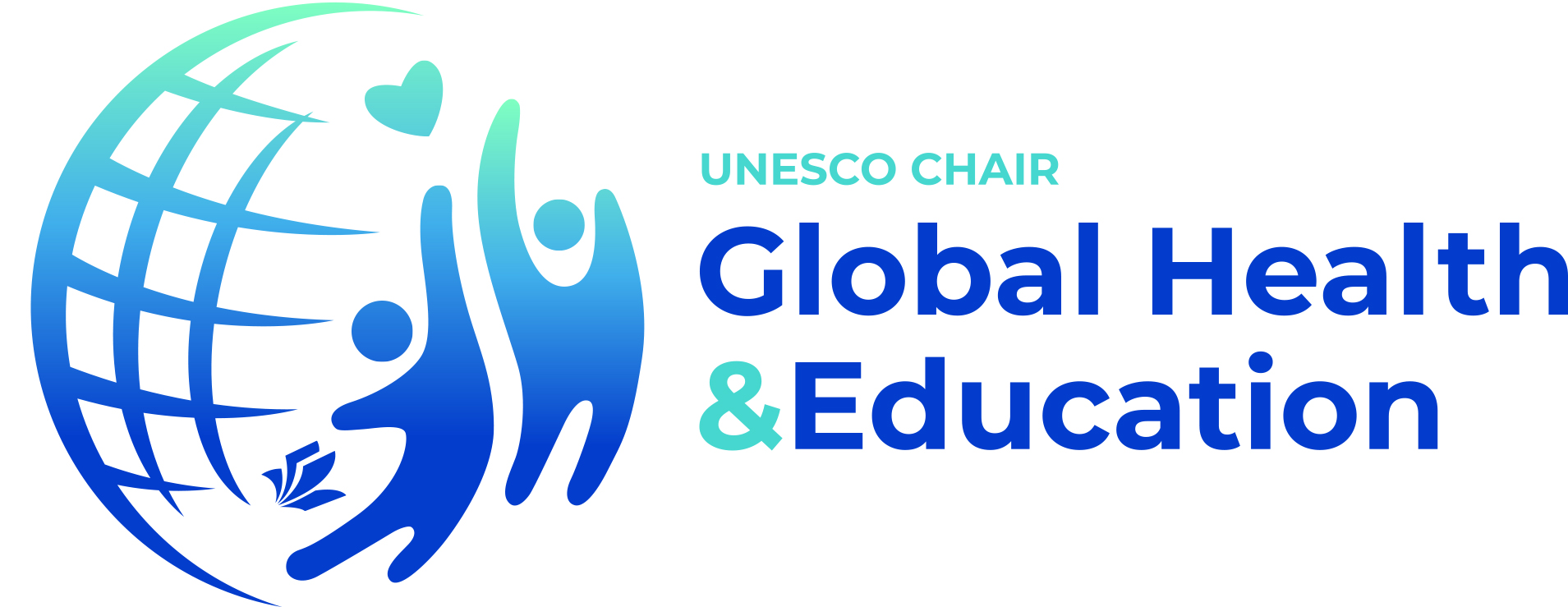The UNESCO Chair Global Health & Education is defined as an open community. It is neither an institution nor a network. Read the article about what characterizes a community in the way that we understand it.
A community is based on what is common
The word community comes from the Latin communitas which is based on communis: ‘shared in common’. So, a community is a group of people who share something. This can be a good, a resource, or an obligation, a debt. The word is used in many contexts to define different realities, but it is always about the connections between people and what is common. In our view, an open community refers to what is shared by anyone with a shared interest.

Produce and share knowledge, contribute to change for health
The UNESCO Chair Global Health & Education is a space for dialogue and action in the field of prevention, health education and health promotion of children and young people. Its role is to create a framework within which all actors in the field (individuals, communities, networks, and institutions) can come together around common projects, create visibility on an international level and contribute to the dynamics of the United Nations. This commonality is based on two inseparable dimensions:
- Produce and share knowledge;
- Contribute to social change for the health of children and young people.
The UNESCO Chair aims to contribute to strengthen the ‘common good’. It provides an ethical and political framework based on the United Nations and works on the following areas:
- to create a global community;
- to renew the prevention framework and adapt it to today’s world, in particular to the needs of children and young people;
- to produce knowledge;
- to support the implementation of training and education systems;
- to contribute to knowledge sharing.
These areas have an open definition and are constantly evolving.
Contribute to the emergence of a renewed field of prevention
This commitment to knowledge production and knowledge sharing is linked to our ambition to contribute to the evolution of policies and practices in order to improve the health and well-being of all and our planet and reduce inequalities. To achieve this, the community relies on a broad diversity of knowledge: knowledge from scientific research as well as knowledge from the experience of people and communities in a wide variety of social and cultural contexts. It is essential to bring together social practices, practice-based knowledge and scientific knowledge and thus creating the conditions for a true ‘ecology of knowledge’. To accommodate the diversity of human realities, particularly in situations of vulnerability, it is important that this knowledge should not be limited to data produced in urban areas of countries in the Global North, but should instead come from different geographical, social and cultural areas. On those grounds, and in collaboration with all actors, the Chair aims to contribute to a renewed definition of the field of prevention and thus of policies and practices. This redefinition requires structured bodies of knowledge, approaches to professionalize stakeholders and tools to support political decision-making.
An open community at the service of its members

The community is a dynamic form of gathering centred on a common ambition. It is in no way intended to replace existing institutions or networks, those who take part in community life are often members of networks or institutions. The community is not primarily referred to a work program to be carried out, but to a project that adjusts itself according to challenges and opportunities.
The community is centred on its members, it does not control but it provides support and guidance based on dialogue. This is the mission of the Chair’s secretariat. It plays the role of creating the conditions for this dialogue and these initiatives. It ensures that everyone can find their place in the exchanges. To this end, it is concerned with an equitable balance between women and men, actors from the Global South and the Global North, researchers and professionals, institutions and the civil society. It is particularly focused on the fact that non-conventional initiatives, those that “slip under the radar” can be promoted. The initiatives carried out by the Chair are fed by the participants in a decentralized way. They are shared within the Scientific and Ethical Committee and then approved with reference to the UNESCO Chair Framework.
The secretariat of the UNESCO Chair and its core activities are funded by non-profit institutions: MGEN foundation and Groupe Vyv. The Ethical Charter of the UNESCO Chair includes our ethical code and types of funding partnerships.
Participating in the community
The strength of the UNESCO Chair Global Health & Education lies in the skills and knowledge of its members. To join the community, no status or diploma requirements are needed. Anyone can join; researchers, professionals in health, social and educational sectors, volunteers from associations, movements or trade unions, committed citizens and legal entities (universities, local authorities, foundations, companies, networks, associations, and institutions) are welcome. The recognition of the UNESCO Chair Framework and commitment to the common initiatives are the central components. The community is open: it gives everyone the opportunity to be involved in activities to their own measure. Thus, the Chair is based on a common ambition. However, it is not homogeneous; a wide cultural and social diversity of views on the purpose of the Chair coexists. It implies that community members feel responsible and contribute in their own way to the initiatives.
Community life is expressed in a wide range of initiatives linked by a common dynamic, which includes regular communication, use of social media, webinars, collaborative contributions in the form of wikis, collegially written reports, MOOC, conferences and seminars.
14 October 2019
Article: UNESCO Chair GHE An open community
